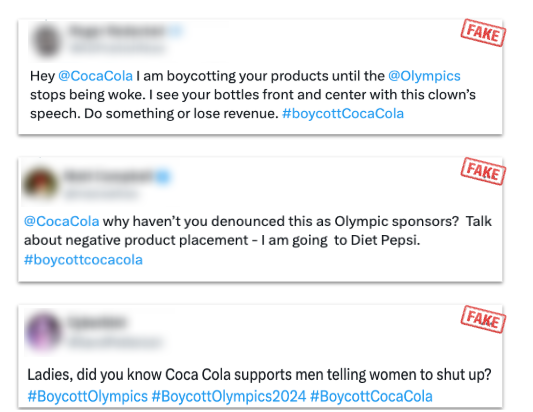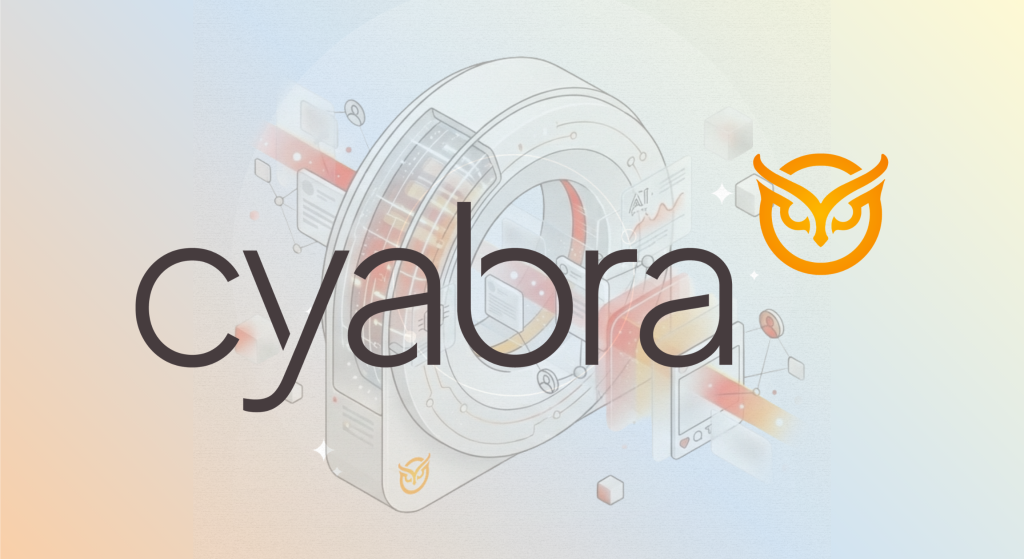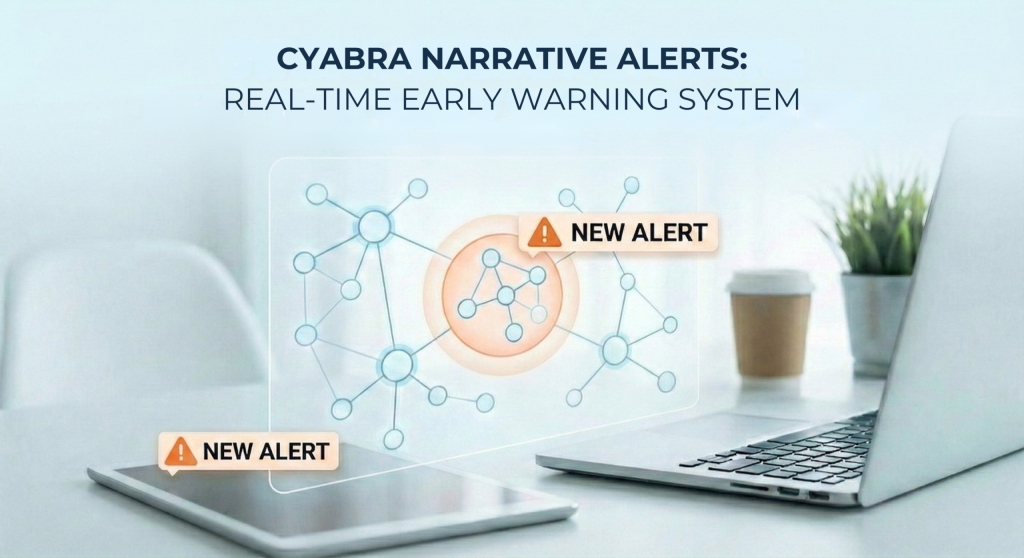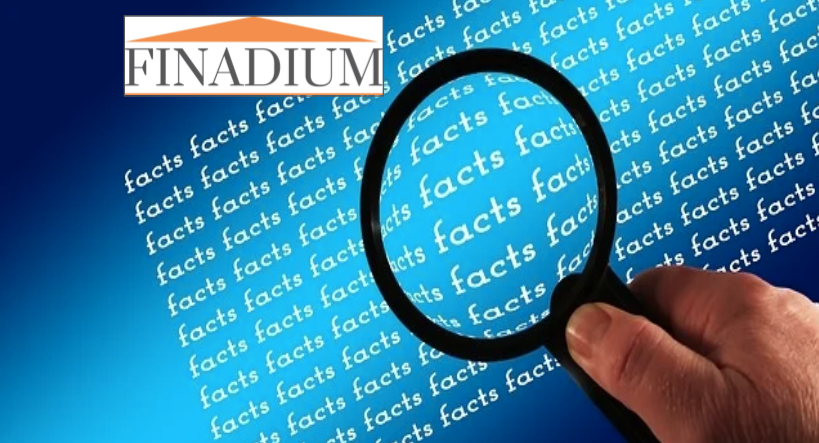Many marketing executives, PR agencies, and social media managers will remember 2024 as the year of fear and confusion in their field: The year they woke up at 4 AM to thousands of negative mentions and couldn’t explain how or why this harmful trend started. The year classic crisis management tactics that have proven reliable for years suddenly failed spectacularly. The year in which companies found themselves under a storm of fake news, mis- and disinformation, as fake profiles escalated and amplified boycotts and online attacks.
In 2023, GenAI entered our lives and changed them irrevocably. In 2024, GenAI became one of the most popular tools for bad actors seeking to cause reputational and financial harm to major companies. 2024 was also the biggest election year in history, with over 2 billion people across the globe casting their votes, which caused many brands to get swept into a storm of fake profiles enhancing negative hashtags for completely unrelated purposes.
Cyabra has been closely monitoring how disinformation and fake profiles polarized and shaped the narrative in 2024. Here’s a roundup of some of the most significant disinformation-fueled attacks and boycotts of the year – and what we can learn from them:
December: Nestle & the Milk Conspiracy
1 in 4 Profiles Spreading #BoycottNestle is Fake
Following misinformation regarding cattle feed additive Bovaer, major brands selling milk products such as Arla Foods, Nestle, and even Tesco and Aldi, were swept into the storm of fake news and conspiracy theories. Despite the fact that Bovaer was widely tested and declared safe by many global health organizations, the false narrative continued to spread, further amplified by fake profiles. Nestle, the latest brand to get swept into this destructive trend last December, was hit by a huge presence of fake profiles, which consisted of 26% of the overall profiles in online conversations. Using hashtags like #BoycottNestle and #BoycottBovaer, fake profiles latched onto viral posts by authentic influencers that were attacking Nestle, and magnified the crisis, bringing the negative hashtags to millions of views. Nestle is still dealing with the reputational damage to its brand to this day.
November: Walmart Boycotted Over Cultural Insensitivity
46% of the Profiles Pushing Negative Hashtags Were Fake
At the end of November, Walmart came out with a new clothing and underwear line featuring the Hindu deity Lord Ganesha. The company was quickly criticized for mockery of Hinduism and for general religious disrespect. After a few days of rising backlash, Walmart removed the campaign and apologized, but the boycott continued to trend. At the peak of the trend, 46% of all online content surrounding Walmart was created by fake profiles. Those posts were overwhelmingly negative, and used hashtags such as #BoycottWalmart, #CancelWalmart, and #RespectHinduSentiment to amplify their messages.
November: Jaguar Is the Latest Victim of #GoWokeGoBroke
Fake Profiles Using #Faguar Pushed the Trend to Millions of Eyes
The backlash against luxury car brand Jaguar started when the company released a new controversial campaign, which brought on a tidal wave of criticism for what authentic profiles called “promoting woke aesthetic over luxury and performance”. As the hashtags #BoycottJaguar, #GoWokeGoBroke began trending, accompanied by the derogatory #Faguar, fake profiles infiltrated the conversation and amplified the negative sentiment, creating the illusion of widespread discontent. 20% of the profiles that promoted #BoycottJaguar and #Faguar were fake, and generated thousands of posts that received almost half a million views, while also amplifying negative articles to reach millions more.
Read more about Jaguar’s crisis
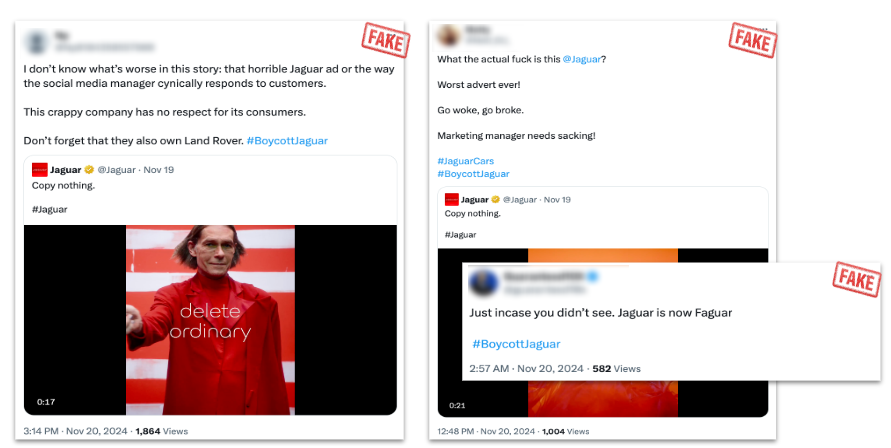
August: A Single Misplaced Product Sparks Coca-Cola Boycott
Coca-Cola Unwittingly Dragged Into Olympic Controversy
The boycott started when the president of the Olympic committee appeared in the media during the games to address an issue of a female boxer supposedly given an unfair advantage. General negative sentiment against the boxer surged after the announcement. Coca-Cola actually had nothing to do with the decision or the boxer – a Coca-Cola bottle was simply resting on the table while the president made the announcement. Coca-Cola was just one of the many sponsors of the Olympic games (which also included Intel, Samsung, Visa, etc), but the company was the only one to get dragged into the backlash. 20% of the profiles in the negative discourse against Coca-Cola were fake, and utilized #boycottCocaCola and #boycottolympics2024 to attack the company.
